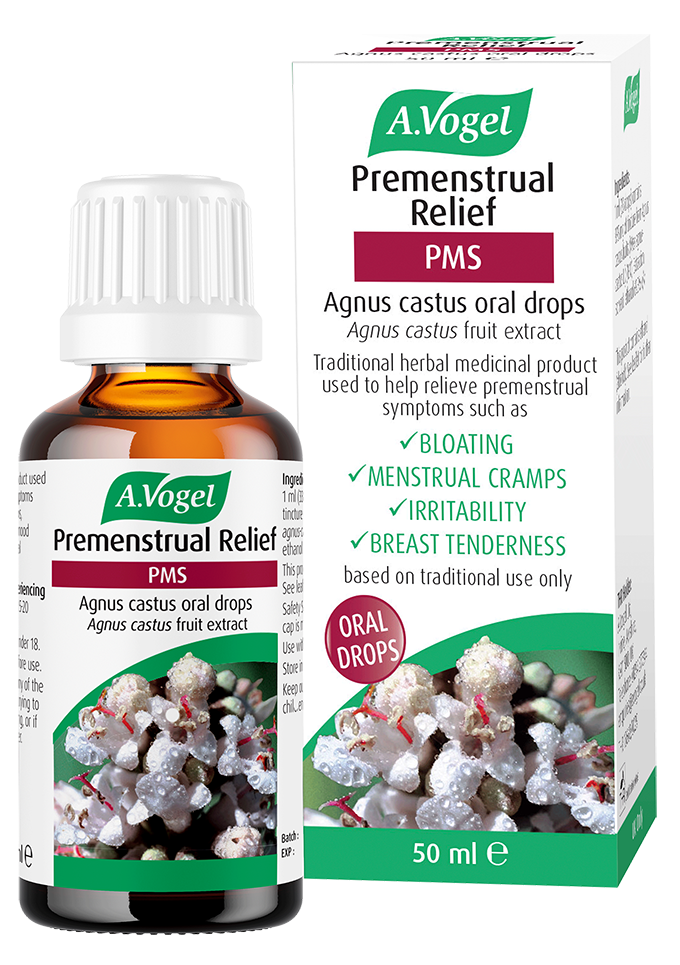An introduction to heavy periods and menopause
In the lead up to the menopause, known as the peri-menopause, many women experience changes to their normal menstrual cycle, including unusually heavy bleeding. This symptom is usually accompanied by irregular periods. A woman may go for several months without a period and then experience particularly heavy bleeding, or may find her periods coming thick and fast.
Aside from the obvious inconvenience of this, heavy bleeding may also lead to further health problems, such as anaemia. This is when there is not a high enough level of iron in the body. This can lead to extreme exhaustion and weakness.
While many women suffer from heavy periods in the lead up to their menopause, it is important to remember that prolonged bleeding should be checked by your doctor. Bleeding for longer than 1 week per month is not healthy.
Why does menopause cause heavy periods?
Your natural menstrual cycle is driven by your hormones. The menopause is the time that your hormone levels fall so that you no longer experience menstrual periods. In the lead up to this cessation, your hormone levels may fluctuate erratically, causing changes to your menstrual cycle, including heavy periods.
During a normal menstrual cycle, the hormone oestrogen is produced to stimulate the thickening of the lining of the womb. When the egg is released from the ovaries, they produce the hormone progesterone.
The interplay of these two hormones means that your periods are regular and not too heavy or light. However, as you approach the menopause, sometimes an egg is not released from the ovaries, although oestrogen is still produced. This means that there is not enough progesterone to balance the effect of oestrogen, leading to heavy periods.
During the menopause, you may encounter other factors which could result in heavy periods, ranging from stress to the side effects of medication. If you suspect that there is an underlying cause to your heavy periods, then it is important to consult a doctor to tackle this.
Diet, lifestyle and home remedies for heavy periods
It is important to remember, that while heavy periods are unpleasant, they are often a normal part of and one of the symptoms of the menopause, which will eventually cease. However, to make this symptom more bearable, there are some home remedies which may help.
Controlling stress could go a long way towards easing your symptom. This is because stress causes changes in your hormone production. During the menopause, further hormone changes are the last thing that you need, as this may trigger heavier periods than normal.
Improving your diet may help as well. Having a diet full of the correct nutrients and vitamins will help your general health and wellbeing, while a diet full of caffeine and refined sugar makes you more susceptible to symptoms such as heavy periods.
It is important to keep your iron levels high if you are experiencing heavy periods, otherwise you could develop anaemia. Iron is found in foods such as dark leafy vegetables and meat. Many women find it necessary to take an iron tonic at this stage of their life.
Are there herbal remedies to help me?
Heavy periods at the start of the menopausal phase in your life can be treated using the herb Agnus castus which has the ability to stablise your hormones. This is especially so if you also suffer from irregular periods.
Agnus castus is a herb that is best known for treating the symptoms of PMS in younger women, but can also be useful for helping balance the hormones during the early stages of menopause, especially if symptoms such as breast tenderness, bloating or irritability are present.
![]() "Excellent product. Unlike a lot of Agnus Castus supplements, this one is concentrated enough to make a real difference. It helps to manage my period symptoms and I couldn't live without it."
"Excellent product. Unlike a lot of Agnus Castus supplements, this one is concentrated enough to make a real difference. It helps to manage my period symptoms and I couldn't live without it."![]()
If you have been experiencing heavy and prolonged periods for some time, and if you are beginning to feel fatigued and weak, it is important to seek the attention of your doctor.
What about conventional medicine?
Your doctor will discuss which treatment would be most effective for you. He may suggest a contraceptive pill or HRT which would influence your hormones in order to regulate your periods. However, it is important to be aware of the side effects of these treatments. He may also give you medication to stop flooding quickly, if your periods are very heavy or prolonged.
If you are worried that your heavy periods are caused by an underlying health issue or are resulting in anaemia, then it is also important to visit your doctor. Heavy periods are not something which should be ignored, as loss of blood can be detrimental to health.









